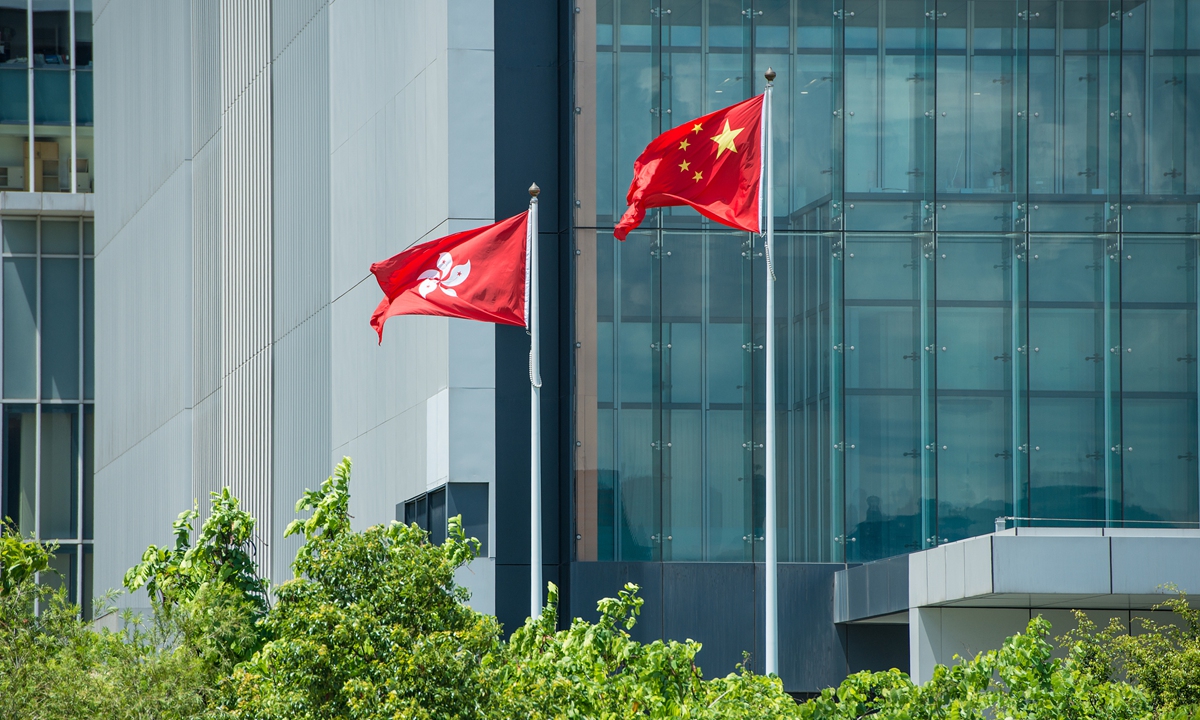Reciprocal sanctions on US lawmakers, NGOs ‘aim to reduce influence in HK, warn secessionists’
By Cao Siqi and Zhang Han Source: Global Times Published: 2020/8/10 21:58:27
Move aims to reduce US influence in HK, warn secessionists: experts

Hong Kong Photo:VCG
China on Monday announced sanctions against 11 US lawmakers and heads of nongovernmental organizations, including US senators Marco Rubio and Ted Cruz, and Executive Director of Human Rights Watch Kenneth Roth, as countermeasures against earlier US sanctions on 11 officials from the Chinese mainland and the Hong Kong Special Administrative Region (HKSAR).
The US move has been slammed by China as an act of hooliganism. Officials on the US list have reiterated that they will not be intimidated by such "shameless and despicable" acts and the sanctions will have no impact on them.
At Monday's routine press briefing, Foreign Ministry spokesperson Zhao Lijian announced the sanctions. "China resolutely opposes and strongly condemns such blatant interference in Hong Kong affairs - China's internal affairs - as it seriously violates international law and the basic principles of international relations," Zhao said.
A spokesperson for the HKSAR government said Monday that it fully supports the countermeasures taken by the central government against the US and will fully cooperate with their implementation.
Among 11 US lawmakers and NGO chiefs are US senators Rubio and Cruz, as well as Josh Hawley, Tom Cotton, Pat Toomey and Representative Chris Smith.
Chiefs of so-called NGOs, namely Carl Gershman, president of the National Endowment for Democracy, Derek Mitchell, president of the National Democratic Institute, Daniel Twining, president of the International Republican Institute, Roth, executive director of Human Rights Watch, and Michael Abramowitz, president of Freedom House, are also on the list.
All the US lawmakers were found to be behind multiple US bills interfering in Hong Kong affairs and they have played a role in the city's political turmoil that lasted more than one year.
Among them, Rubio, Cruz and Smith were put on China's sanctions list in July following the US sanctions on Chinese officials over the Xinjiang-related issues.
Rubio, Hawley and Smith were authors of the so-called Hong Kong Human Rights and Democracy Act. Rubio met with secessionist Joshua Wong when the latter visited the US in 2019.
Cruz visited Hong Kong during a regional tour in 2019 and met with some Hong Kong rioters. He also cast aside the facts and claimed then that he had never heard, or seen evidence, of rioting, vandalism and mob attacks.
Others have praised Hong Kong rioters and been deeply involved in the Hong Kong Autonomy Act.
The US NGOs were put on the sanctions list by China in December 2019 for their "horrible activities in the months-long turmoil in Hong Kong," after the US passed and signed the so-called Hong Kong Human Rights and Democracy Act.
"A great amount of evidence exists that these NGOs have supported anti-China forces to create chaos in Hong Kong, and made utmost efforts to encourage these forces to engage in extreme violent criminal acts, and also hyped separatist activities in Hong Kong," Chinese Foreign Ministry spokesperson Hua Chunying said at a routine press conference on December 2, 2019.
"They have a huge responsibility for the current chaos in Hong Kong, and deserve to be sanctioned and pay the price," Hua noted.
Li Haidong, a professor with the Institute of International Relations under the China Foreign Affairs University, told the Global Times on Monday that the countermeasure sends out a clear signal that China will not concede a single step on issues of core interests - sovereignty and territorial integrity - and the US must abandon the illusion that it can act arbitrarily without cost.
It is not clear what specific methods will be taken against the sanctioned US officials, but Li said that these steps will be proportionate to US sanctions against Chinese officials. Possible policies include denying their entry to Hong Kong and freezing their accounts registered in Hong Kong.
The sanctions came on the same day that Jimmy Lai Chee-ying, founder of local newspaper Apple Daily, was arrested by Hong Kong police, which observers said struck a heavy blow to Hong Kong secessionists who were trying to collude with foreign forces.
"It is a combination punch to those forces that have attempted to interfere in China's internal affairs," said Kennedy Wong Ying-ho, solicitor of the Supreme Court of Hong Kong on Monday.
The sanctions target specific personnel of these organizations, meaning that they could be restricted from entering Chinese territory and these organizations' cash flow in Hong Kong could be frozen, Wong told the Global Times on Monday. In January, Kenneth Roth was barred from entering Hong Kong. He was scheduled to launch the NGO's World Report 2020 on human rights abuses in the city.
Imposing restrictions on these organizations' operations will reduce their influence in Hong Kong and stop them from supporting opposition camps, analysts noted.
"No foreign nationals have been arrested under the new national security law so far, but these sanctions issue a strong warning to them," Wong said.
Newspaper headline: China imposes reciprocal sanctions
RELATED ARTICLES:
Posted in: HK/MACAO/TAIWAN